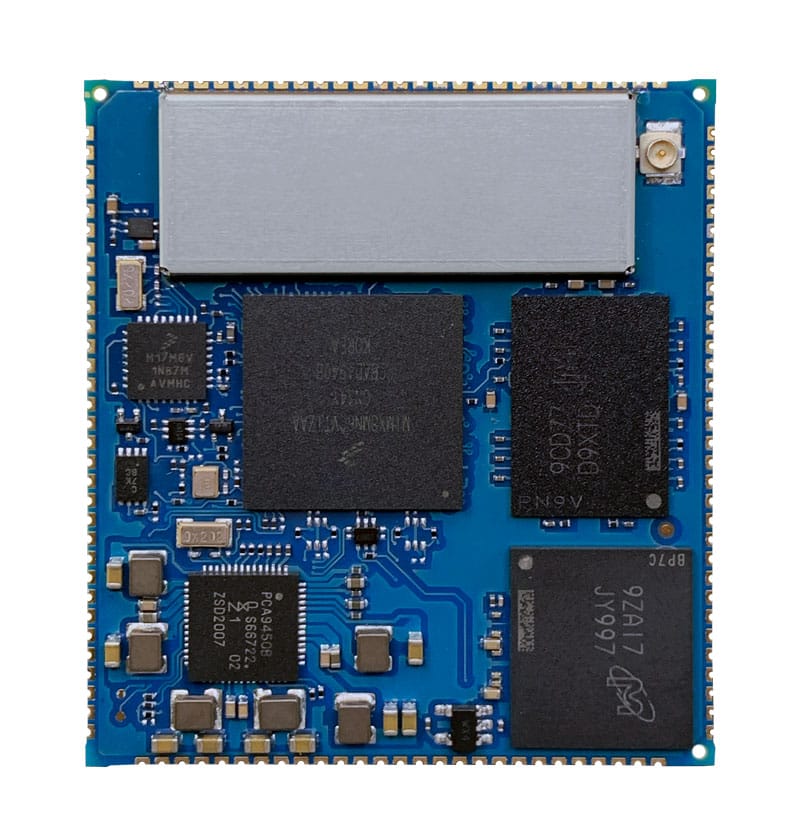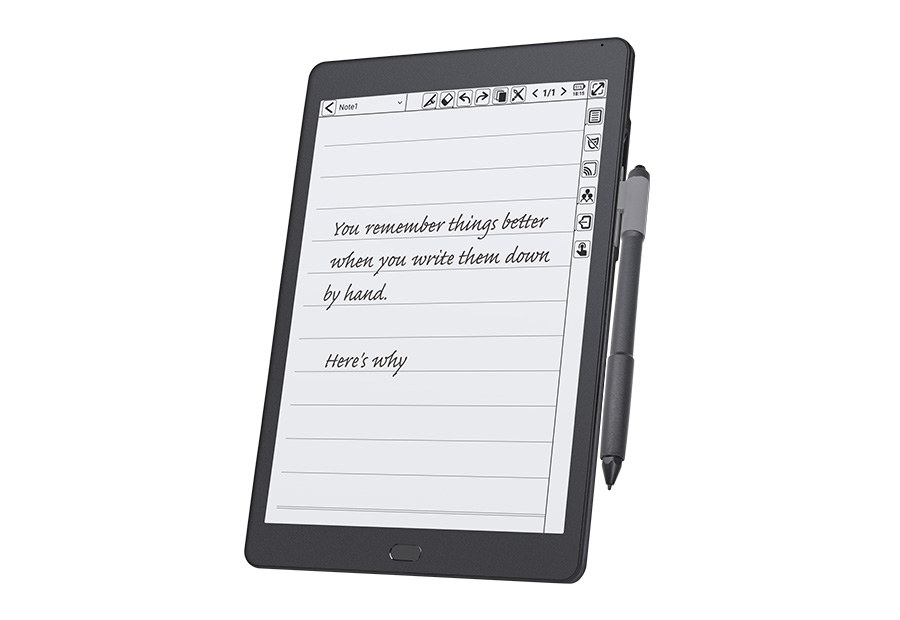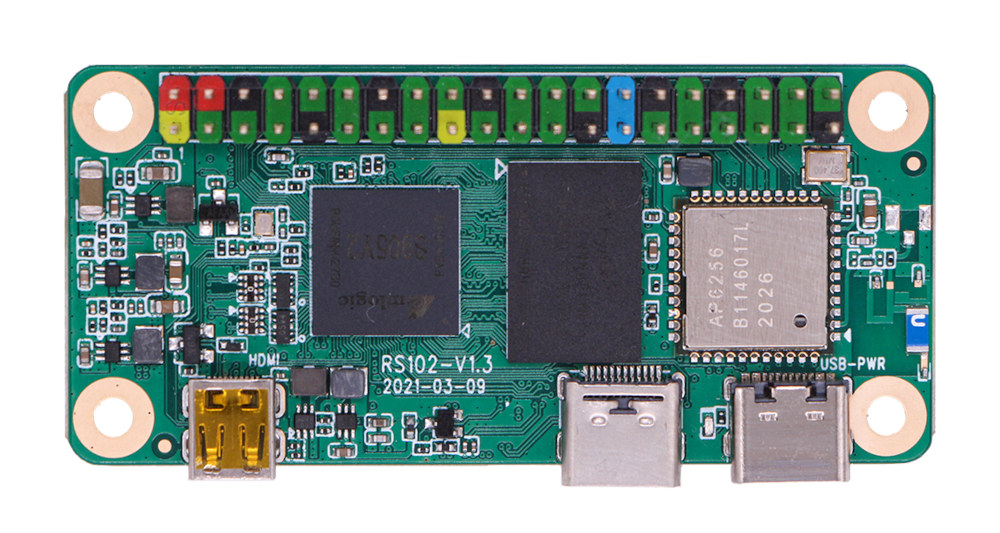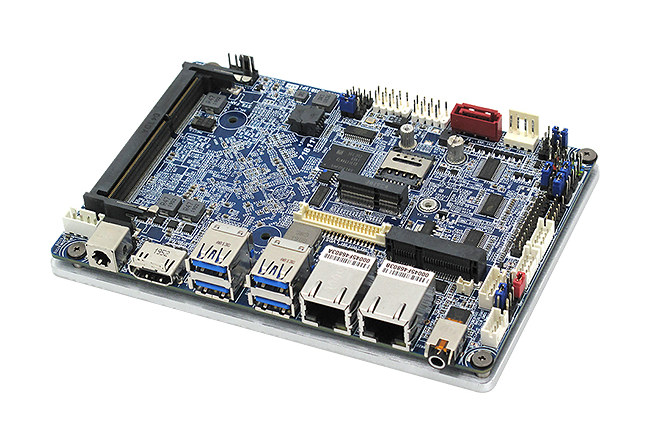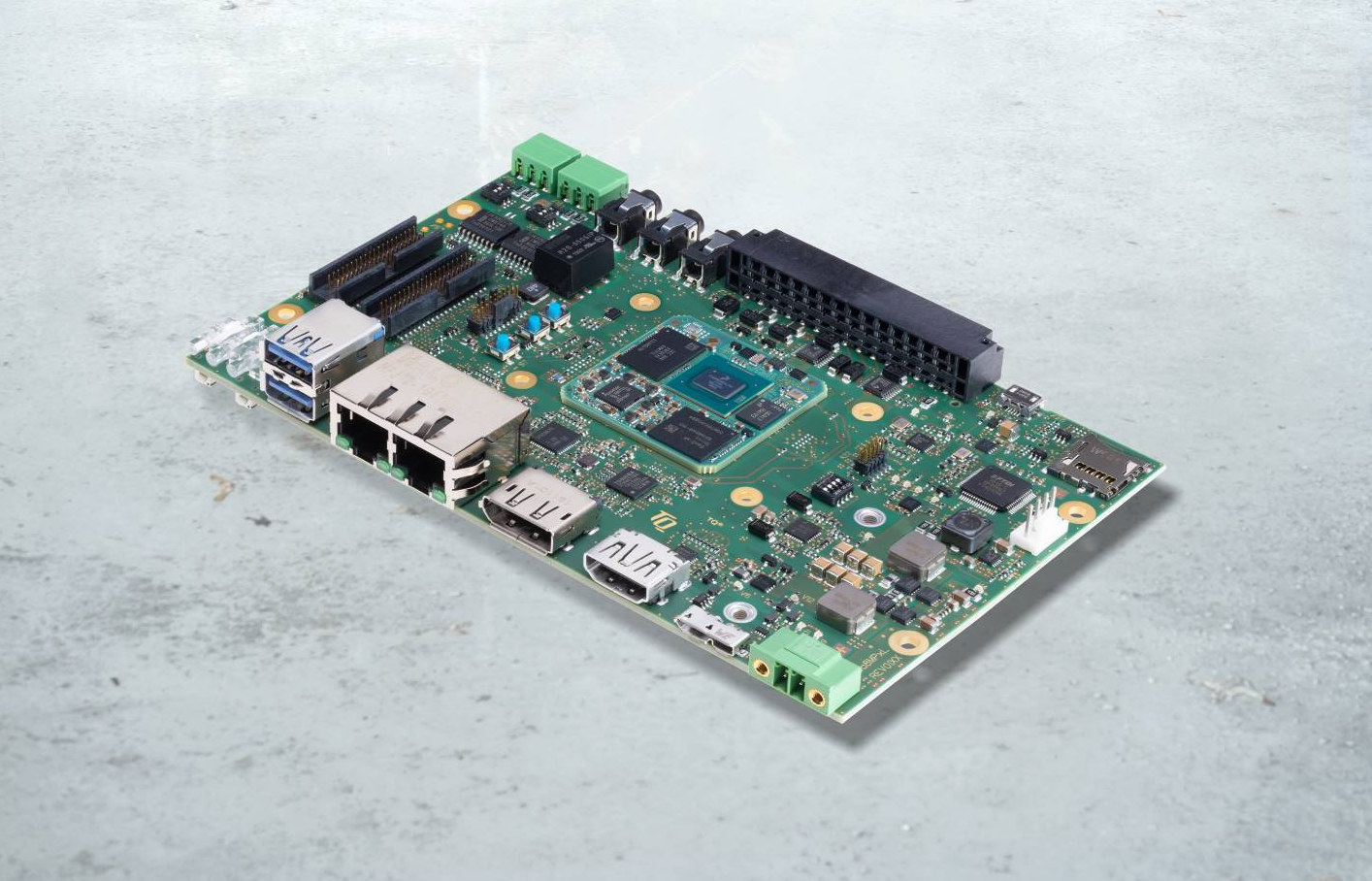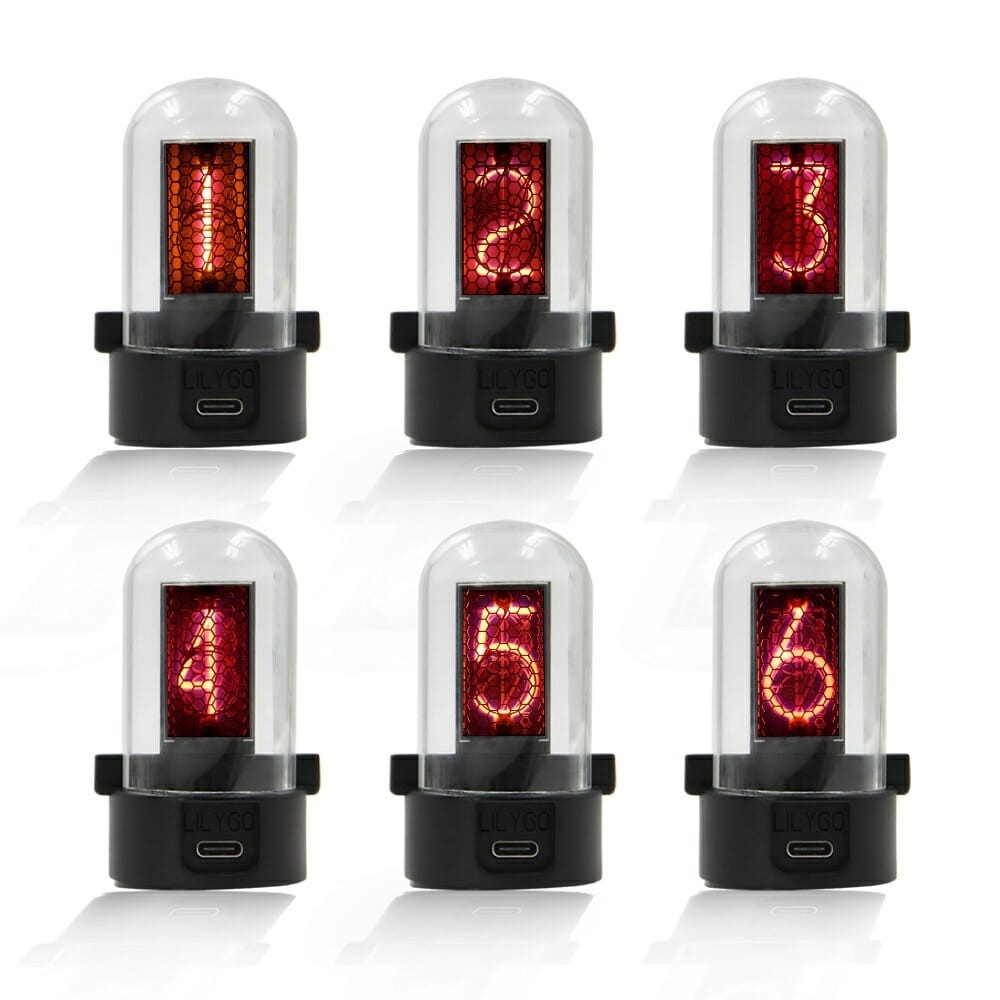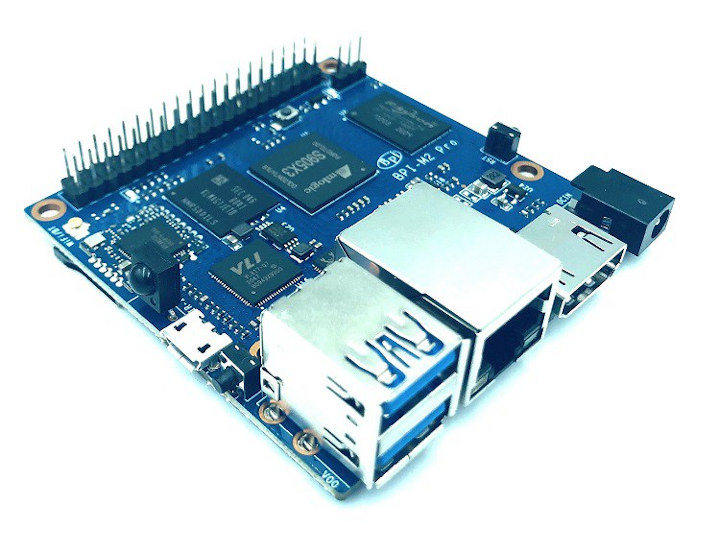Digi International has announced the Digi ConnectCore 8M Mini System-on-Module (SOM) which is an addition to its ConnectCore family modules. We saw the Android application development kit featuring earlier Digi Wireless modules based Freescale i.MX51 (ConnectCore Wi-i.MX51) and i.MX53 (ConnectCore Wi-i.MX53) in early 2012. The new Digi ConnectCore 8M Mini comes with a built-in Video Processing Unit specialising in vision use cases. The Digi ConnectCore 8M Mini SOM is an industrial i.MX 8M Mini quad-core system-on-module that comes with Arm Cortex-A53 cores, one Cortex-M4 core, and the Cortex-M0-based Digi Microcontroller Assist. This enables optimal power consumption while simultaneous maintenance of highly efficient performance. Main benefits of Digi Connect Core 8M Mini SOM Digi SMTplus form factor (40 x 45 mm) for flexibility and reliability while designing. Power management with both hardware and software support for low-power designs. Display and camera capabilities with graphics and video hardware acceleration make it suitable […]
KloudNote 10.3-inch E-reader supports WiFi, Bluetooth and cellular connectivity
Geniatech used to be better known for their Amlogic TV boxes, before expanding their business to development boards and systems-on-modules. But the company has now introduced KloudNote, a 10.3-inch E-reader running Android 8.1 on a quad-core Cortex-A35 processor. The device is equipped with 2GB of RAM and a 16GB eMMC flash, supports WiFi 5 and Bluetooth, as well as optional 2G/3G/4G LTE cellular connectivity, and comes with a USB-C port and a headphone jack. KloudNote (sometimes written Kloud Note) specifications: SoC – Unnamed quad-core Cortex-A35 processor @ 1.2 GHz System Memory – 2GB RAM Storage – 16GB or 32GB eMMC flash Display – 10.3-inch E-Ink flexible screen with cover-lens, 1872×1404 resolution, capacitive touch and electromagnetic touch with support for a stylus with 4096-level of pressure sensitivity Connectivity 802.11 a/b/g/n/ac WiFi 5, Bluetooth 4.2 Optional 2G/3G/4G Audio – Earphone jack, built-in speaker & microphone USB – 1x USB-C port for charging Documents […]
Radxa Zero SBC – A powerful quad-core alternative to Raspberry Pi Zero W
Radxa Zero SBC follows Raspberry Pi Zero W form factor, but thanks to an Amlogic S905Y2 quad-core Cortex-A53 processor clocked at up to 2.0 GHz offers much higher performance, which Radxa says corresponds to about 70% of Raspberry Pi 4 CPU performance. The tiny Arm Linux board comes with up to 4GB RAM, 16GB eMMC flash, and either AP6212 or AP6256 wireless module. plus all interfaces from Raspberry Pi Zero W, but with a twist as the mini HDMI port is replaced by a micro HDMI port, and USB-C ports are used instead of micro USB ports. Radxa Zero preliminary specifications: SoC – Amlogic S905Y2 quad-core Cortex-A53 processor @ up to 2.0 GHz with Arm Mali-G31 MP2 GPU System Memory – 512MB RAM, 1GB, 2GB, or 4GB LPDDR4 Storage – MicroSD slot, optional 8GB or 16GB eMMC flash Video Output – micro HDMI port up to 4Kp60 Connectivity Ampak AP6212 […]
3.5-inch SBC targets industrial applications with 9-36V wide-range DC-in
BCM Advanced Research ECM-3455J is an upcoming 3.5-inch SBC designed for industrial application with 9-36V wide range DC-in support, an Intel Celeron J3455 quad-core Apollo Lake processor, up to 8GB SO-DIMM memory, and 32GB on-board eMMC flash. The single board computer also comes with HDMI and LVDS video out, dual Gigabit Ethernet, an M.2 socket a micro SIM socket for cellular connectivity, as well as up to eight USB interfaces, and a thick and large heatspreader for fanless operation. ECM-3455J specifications: SoC – Intel Celeron J3455 quad-core Apollo Lake processor @ 1.5GHz / 2.3GHz (Burst Frequency) with Intel HD graphics 500; 10W TDP System Memory – 1x 204-pin SO-DIMM DDR3L-1600MHz socket for up to 8GB RAM Storage – 32GB eMMC flash (option: 64GB), 1x SATA III port, mSATA socket (See expansion), 64Mbit SPI flash for AMI UEFI BIOS Video Output 18/24-bit dual-channel LVDS through Chrontel CH7511B embedded DisplayPort to LVDS […]
TQ unveils i.MX 8M Plus LGA module and evaluation single board computer
We’ve seen plenty of systems-on-module based on NXP i.MX 8M Plus AI processor announced at Embedded World 2021 either with edge or board-to-board connectors. TQ TQMa8MPxL is a bit different as an i.MX 8M Plus LGA (Land Grid Array) system-on-module meant to be soldered on a carrier board. The company also took the occasion to unveil STKa8MPxL evaluation kit based on TQMa8MxML in single board computer format to demonstrate its new LGA module. TQMa8MPxL i.MX 8M Plus LGA module Specifications: SoC – NXP i.MX 8M Plus “Quad 8 ML/AI”, “Quad 6 Video”, or “Quad 4 Lite” processor with four Cortex-A53 cores, one Cortex-M7 core, Vivante GPU, video encoder/decoder, HiFi4 audio DSP, and 2.3 TOPS AI accelertor System Memory – Up to 4 GB LPDDR4 Storage – Up to 256 MB (MBytes)Quad SPI NOR flash, up to 256 GB eMMC flash, optional EEPROM up to 64 Kbit 362-pin LGA with Storage […]
T-Nixie Tube is an ESP32 based Nixie Tube lookalike
I tend to see Nixie Tube projects regularly as I spend my days going through the news, and the projects, usually some sort of clock, typically look pretty neat. But although Nixie Tubes can still be purchased online, they are not mass-produced anymore, which may explain why LilyGo decided to create a “fake” Nixie Tube, or let’s call it a lookalike, with T-Nixie Tube that comes with an IPS LCD display driven by an ESP32 WiFi & Bluetooth WiSoC. T-Nixie Tube specifications: Wireless Module – TTGO T-Micro32 module with ESP32 V3 Bluetooth and WiFi processor, 4MB Flash Display – 1.14-inch IPS LCD display covered by glass tube USB – USB Type-C port for power and programming Expansion – 4-pin I2C/UART Grove? connector for T-WATCH sensor kit or T-FH interface sensor modules Misc – PCF8563 RTC, IR receiver, TTP223 touch button, Reset button Power Supply – 5V via USB-C port Dimensions […]
Banana Pi BPI-M2 Pro compact Amlogic S905X3 SBC launched for $61
Banana Pi has already designed an Amlogic S905X3 SBC with Banana Pi BPI-M5 that closely follows Raspberry Pi 3 Model B form factor, but they’ve now launched a more compact model with Banana Pi BPI-M2 Pro that follow the design of the company’ earlier BPI-M2+ SBC powered by the good old Allwinner H3 processor. BPI-M2 Pro comes with 2GB RAM, 16GB eMMC storage, HDMI video output, Gigabit Ethernet, Wifi & Bluetooth connectivity, as well as two USB 3.0 ports. Banana Pi BPI-M2 Pro specifications: SoC – Amlogic S905X3 quad-core Cortex A55 @ up to 2.0 GHz with an Arm Mali-G31 GPU System Memory – 2GB LPDDR4 Storage – 16GB eMMC flash, microSD card slot Video & Audio Output – HDMI 2.1 up to 4Kp60 with HDR, CEC, EDID support Connectivity Gigabit Ethernet Dual-band 802.11 b/g/n/ac WiFi 5 1×1 and Bluetooth 4.2 via Realtek RTL8821CU module USB – 2x USB 3.0 […]
Android 12 Beta released with revamped user interface
Google has just announced the release of Android 12 Beta. We already covered the first Android 12 developer preview with changes including support for AVIF image format, trust and safety improvement, and enhanced media transcoding. But with the release of Android 12 Beta, Google also introduced significant changes to the user interface created with a design language called Material You, plus some new features that we’ll explore in this post. The most notable user-facing changes include: Personalization – Your phone can now be personalized with a custom color palette and redesigned widgets. This is done automatically using color extraction from your wallpaper images, and Android 12 applies those colors across the entire OS including the notification shade, the lock screen, the volume controls, new widgets, etc… Fluid motion and animations – Google optimized the system to make animations more fluid by reducing the CPU time needed for core system services […]


